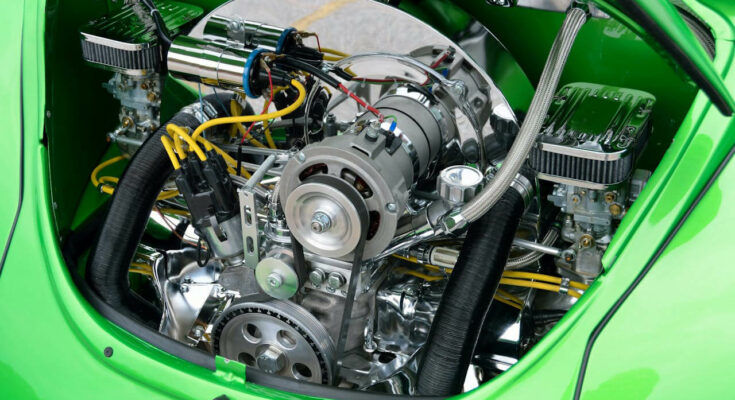Proper maintenance largely depends on a diesel vehicle’s longevity and optimum performance. Everything from knowing the fundamentals of diesel engines to doing routine maintenance on the cooling and fuel systems is essential to maintaining the smooth operation of your diesel car.
This thorough guide will take you step-by-step through the crucial maintenance procedures that will extend the life of your diesel car.
Understanding Diesel Engine Basics
Understanding the fundamentals of a diesel engine is essential for doing routine maintenance on a diesel vehicle. Diesel engines, in contrast to gasoline engines, ignite the fuel by compression rather than spark plugs. This results in higher torque and improved fuel efficiency. Models of cars from Ford, Chevrolet, and Dodge, as well as heavy-duty trucks from Freightliner and Peterbilt, are common examples of diesel vehicles.
These vehicles are renowned for their toughness and capacity to tow. You can take better care of your diesel vehicle by being aware of the distinctions between gasoline and diesel engines as well as familiarity with popular models of diesel vehicles. You can guarantee appropriate maintenance and extend the lifespan and performance of your car by being aware of the particular qualities and needs of diesel engines.
Regular Oil Changes
Regular oil changes are among the most crucial aspects of maintaining a diesel car. Particular types of oil are needed for diesel engines, as they must withstand the engine’s greater pressures and temperatures. Using oils designed specifically for diesel engines is essential for long-term results. Diesel vehicles require different travel intervals for oil and filter changes depending on the make and model.
It’s generally advised to replace the oil every 5,000 to 7,500 miles or every six months, depending on when the mileage reaches its limit. This keeps the engine clean and properly oiled while also assisting in removing impurities. You may prolong the life of your diesel car, reduce engine wear, and increase fuel economy by keeping to a regular oil and filter change schedule.
Fuel System Maintenance
For a diesel vehicle to operate properly, the fuel system needs to be kept clean and efficient. Fuel contamination can cause problems for diesel engines, including poor performance and possible damage. To avoid problems, it is essential to use clean, premium diesel fuel. One crucial aspect of maintaining a diesel car is changing the fuel filter regularly.
Suggestion: 2024 Hot Rod Power Tour Announcement Route Map
Fuel flow restriction caused by an unclean or clogged fuel filter can result in engine issues and reduced fuel economy. Depending on the make and model of your car, replacing the gasoline filter every 15,000 to 30,000 miles is advised. Fuel delivery and combustion can be impacted when deposits build up in fuel injectors over time, so maintaining a clean and well-functioning fuel system is essential to the smooth and effective operation of your diesel car.
Cooling System and Radiator Care
To avoid overheating and preserve a diesel car’s peak performance, proper maintenance of the cooling system and radiator is essential. A properly operating cooling system is crucial for diesel engines since they run at higher temperatures than gasoline engines. Maintaining the cooling system’s effectiveness and preventing corrosion requires routinely checking and replenishing the coolant.
Additionally, using an antigel diesel fuel additive during colder months can prevent fuel gelling and ensure optimal engine performance. Furthermore, routine radiator inspection is also essential. Inspect for indications of deterioration, including leaks or rust, and swap out the radiator if required. Maintaining the integrity of your diesel vehicle’s cooling system and radiator will assist in shielding the engine from harm and guarantee safe, effective operation.
Monitoring and Maintaining the Exhaust System
To guarantee compliance with pollution regulations and optimal engine performance, monitoring and maintaining the exhaust system is a crucial component of maintaining a diesel vehicle. To effectively reduce emissions, the diesel particulate filter (DPF) needs to be routinely inspected and maintained. Periodically cleaning or replacing the DPF is necessary to keep blockages at bay and preserve effective exhaust flow.
Engine performance may suffer, and harm may result from improper DPF maintenance. To guarantee that your diesel car satisfies emission requirements, it is also crucial to do routine inspections and tests of the emission system. By inspecting the exhaust system for leaks, cracks, or other problems, you can help guarantee that your car runs safely and effectively while preventing hazardous emissions.
Conclusion
Routine maintenance is essential for a diesel vehicle’s longevity and proper functioning. You can guarantee its safe and effective operation by following a regular maintenance program that includes routine oil and filter changes, fuel system maintenance, and observation of the cooling and exhaust systems. In the long term, proper maintenance and care for these important areas will help save you time and money by extending the life of your diesel vehicle and preventing any future problems.



















